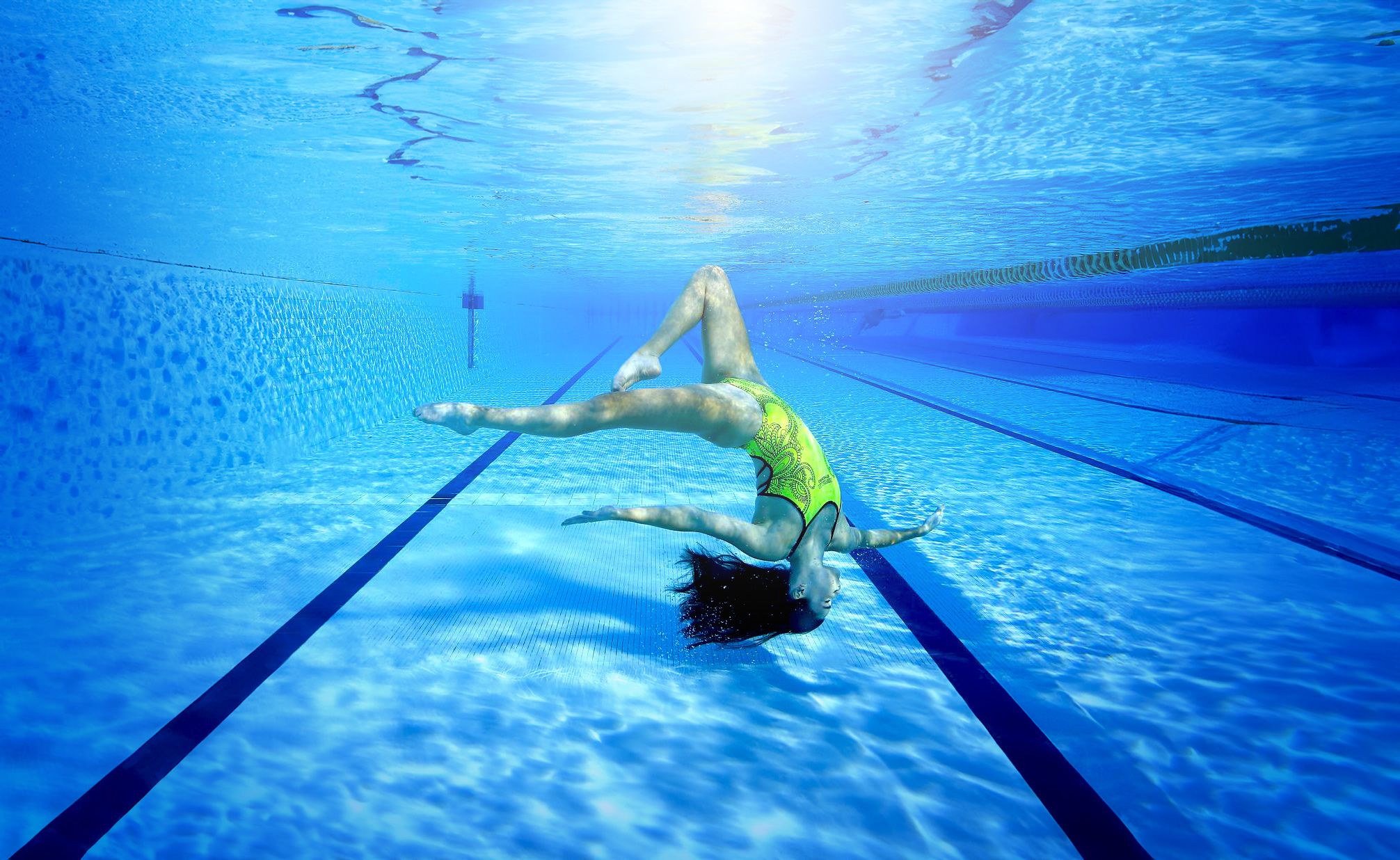
Bachelor of Design in Architecture student Kiera Gazzard qualified for the Paris Olympics, representing Australia in artistic swimming.
Hurtling your teammates above the pool’s surface, underwater acrobatics, and overcoming concussion — artistic swimmers can make the most strenuous routines appear graceful. And when the stars align and not a toe twirls out of place, a strong team can feel the magic amongst them before they’ve even left the pool. It’s a moment Kiera Gazzard is chasing in Paris after being selected for the 2024 Australian Olympic Team.
On the path to her second Summer Olympics, the Bond University student and ADCO Sports Excellence scholar has found a “whole second family” in her team — a bond she says can be felt throughout their performance. She opened up about the team that keeps her passionate and the less graceful sides of her spectacular sport.
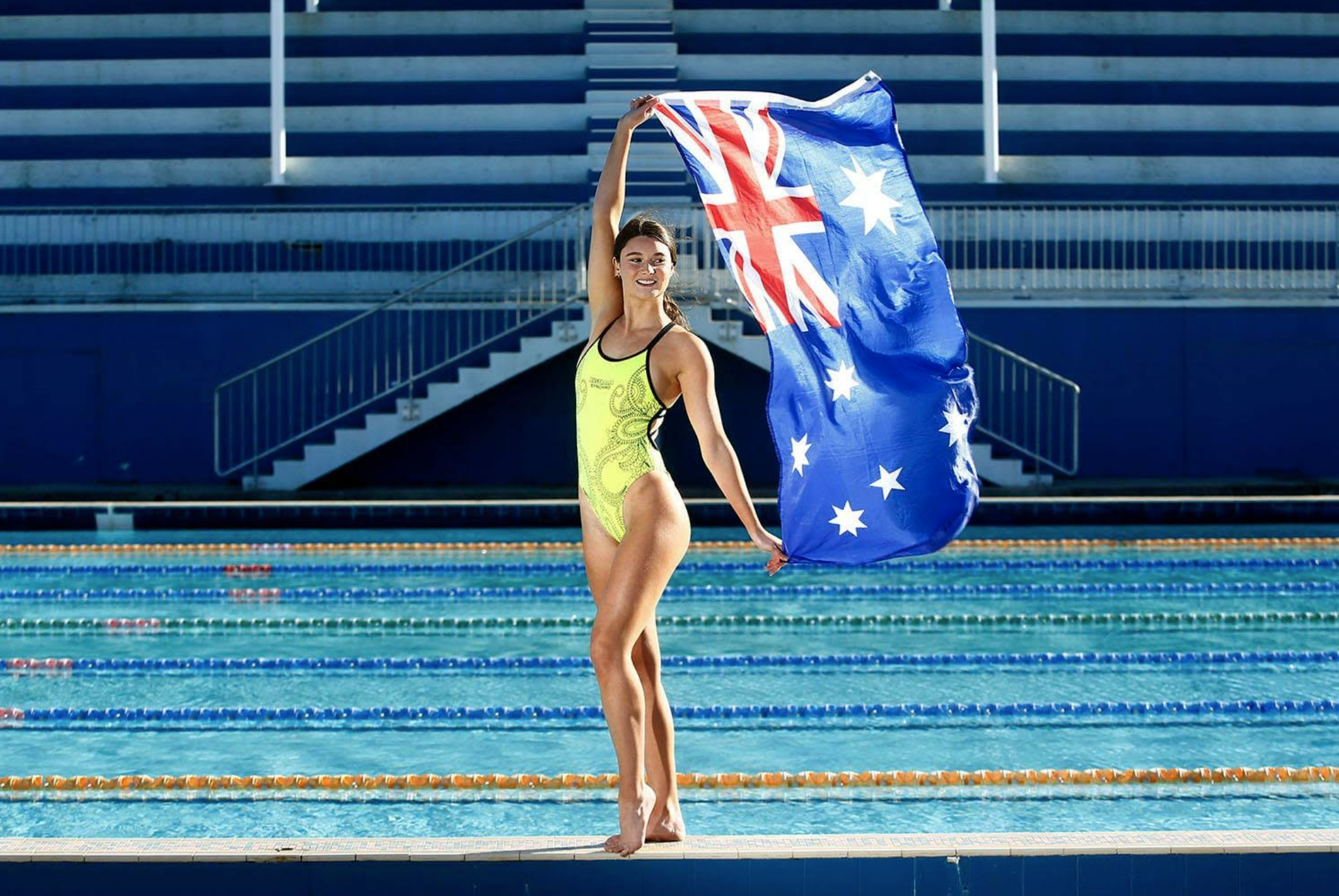
What does a training schedule look like for an artistic swimmer aiming for the Olympics?
It’s about 40 to 45 hours per week. It’s 7am to 4pm four days a week, and a half-day two days a week. That comprises weight training, strength and conditioning, swimming training and our sport-specific artistic swimming training.
You represented Australia at Tokyo 2020. How was the experience of putting so much preparation into an event that had to be postponed due to Covid?
It was quite a unique time and it was devastating for me when the Olympics were postponed because of the uncertainty around whether they would even happen at all. I was quite young at the time, I was 18 when they were cancelled, and a lot of the girls on our team had injuries. So in hindsight, it was a blessing in disguise that it was postponed because we could prepare better and be stronger by the time the Olympics were held the following year.
How did the postponement impact your goals and your training?
Our goals stayed the same, but we could push ourselves a little bit further with them because we had more time. The girls who were injured were able to recover, which allowed us to make new routines for competitions so we revamped the whole team.
This isn't the only hurdle you have had to overcome in your career, with a concussion setting you back in 2019. Is that a common injury in artistic swimming?
They're extremely common. They happen all the time. We’re always kicking each other underwater. We have to get as close as we can with throwing girls in the air and you never know where they're going to land so yes, it's very common. And I don’t think there's a team that will be at the Olympics that hasn't had an individual experience concussion before.
We're not wearing goggles either so it's hard to see what's happening. Basically it comes down to practising and being cautious and not being irresponsible when we're doing difficult tricks.
Something that a lot of people might not know about our sport is that we can actually hear the music through underwater speakers and it helps us keep in time, so I guess that helps with not getting in each other’s way as well.
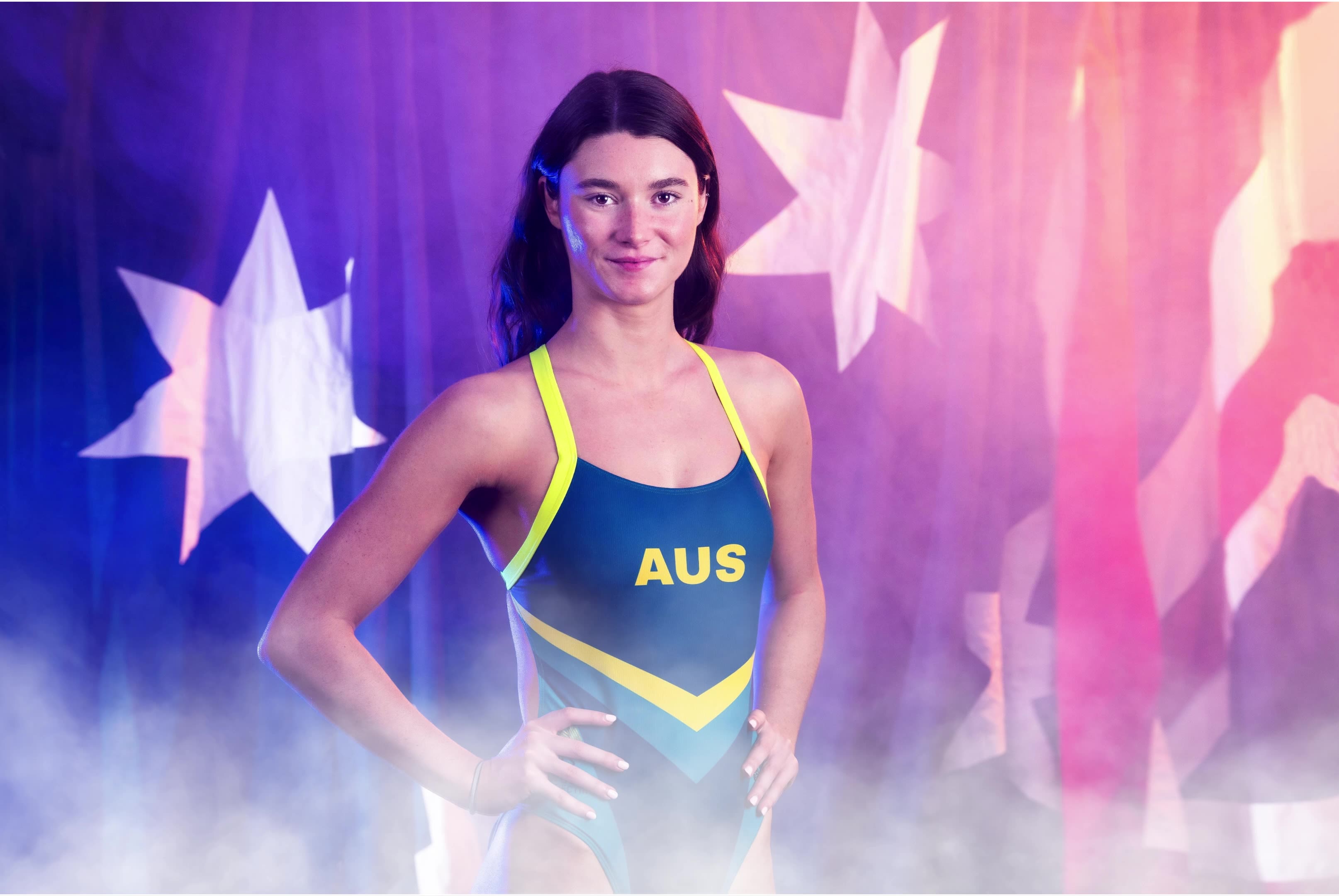
ARTISTIC SWIMMING WORLD CUP 2024
SILVER
Team free
ARTISTIC SWIMMING WORLD CUP 2024
SILVER
Team technical
ARTISTIC SWIMMING WORLD CUP 2024
BRONZE
Team acrobatic
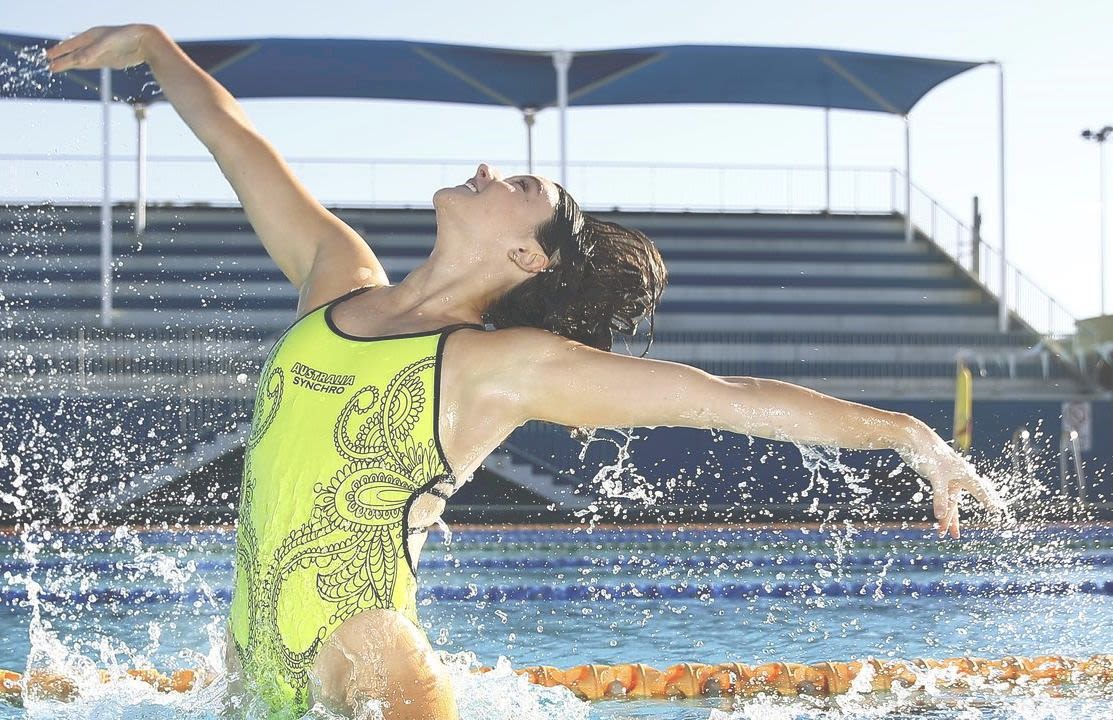
How do you think the challenges you have overcome have shaped you as an athlete?
Adversity is an essential part of sport, and what makes a good athlete is being able to overcome those obstacles and use them to make you stronger. I would say that any sort of injury makes you really take care of your recovery and your body so that you can perform better. When a team struggles with adversity, they usually come together. I think that this team, even in our Paris journey, has overcome a lot of obstacles. And we've ultimately become stronger because of it.
You progressed to the final to finish ninth at Tokyo, what are your hopes this time around?
There are new events in this Olympics and a new scoring system so we don’t have a score that we can compare to but we definitely want to beat that ninth ranking. Talking specifically to the new scoring system, we don’t want to get any “Base Marks”. My hopes are to beat the previous ranking and make Australia proud with swims we’re proud of.
What have you been focussing on in training?
We've been focussing a lot on bringing our difficulty up. These Olympics will be scored completely different to how they were in Tokyo. We just went to the second stop of the World Cup, which was in France a few weeks ago, and we have taken feedback from that comp and we're pushing our difficulty score. That’s the main goal right now.
Have any of the changes to the artistic swimming rules impacted your game plan?
Yes, training is framed very differently and we’re now spreading our time across three routines rather than two. Our third event also requires a lot of power and energy so there are more hours in the gym and more variety in our coaching. We have diving coaches and gymnastic coaches helping with fliers and flips, for example.
“Adversity is an essential part of sport, and what makes a good athlete is being able to overcome those obstacles and use them to make you stronger.”
What keeps you passionate about the sport?
Having a team that you're excited to train with every day and push each other. It's always a privilege to be able to represent Australia in any sport, especially in the pool — I think Australians love aquatic sport. I’m grateful to be able to enjoy what I'm doing every day and push myself with a lovely group of girls. It's an understatement to say that we spend a lot of time together. We all live together, we're in the pool for seven hours a day together, we're outside the pool together, we eat the same thing every day, we are basically a whole second family. And when someone's having a bad day, we all have a bad day but if someone's having an amazing day then we celebrate our win together. And we overcome obstacles together. It's special to be able to do that as a team, and to be able to represent your country as well and share that is a privilege.
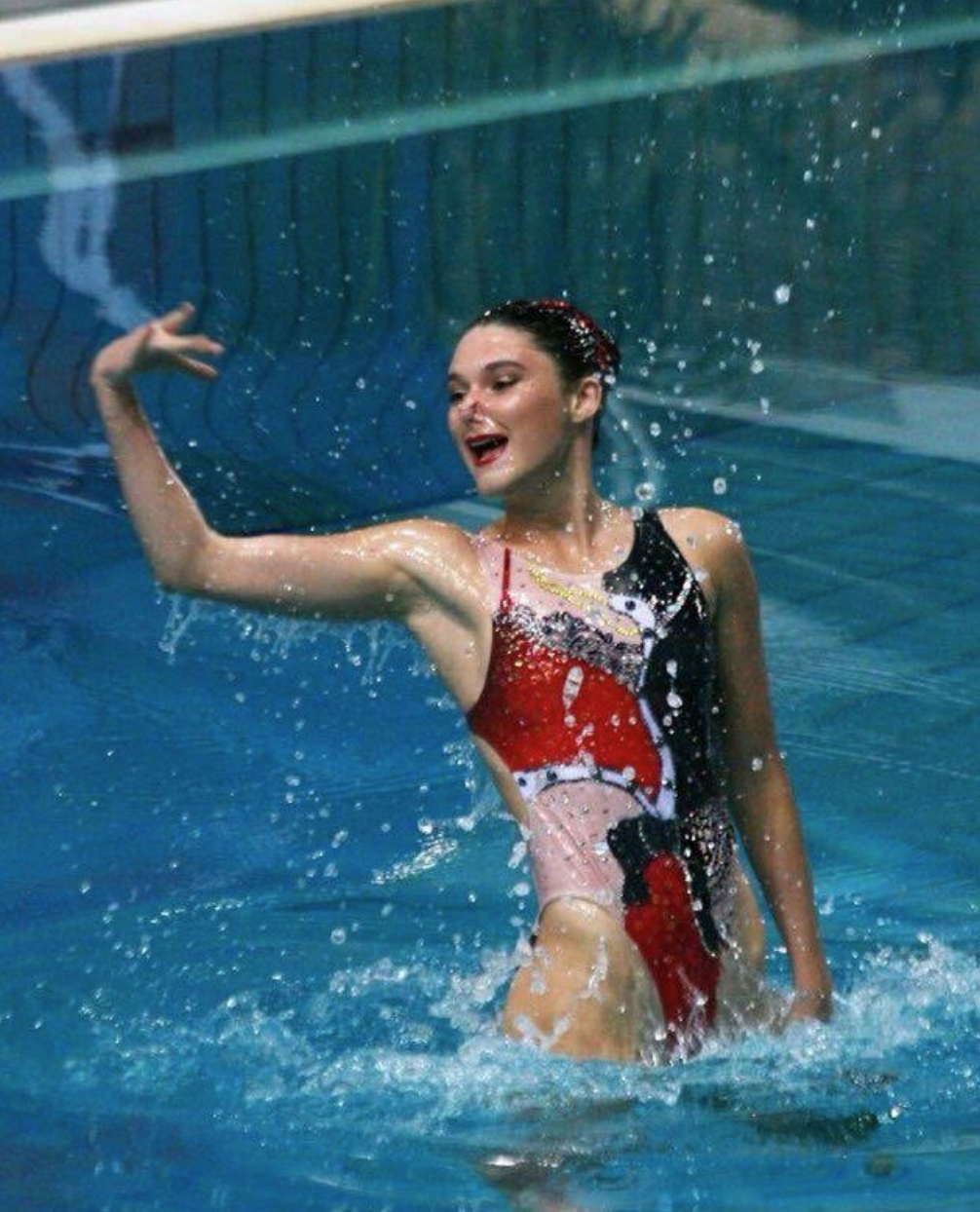
Do you think the strength in that team relationship is reflected in performances?
Definitely. You can really feel when your team is in tune with one another. We always say when we have a good swim, that everyone was calm and really aware of each other. And when we have a bad swim, we know straight away because you can feel it around you while you're swimming.
How are you feeling about representing your country again at the Paris 2024 Olympics?
I’m super excited. We just went to Paris for the second World Cup so we've already had a little trial with the routines. I’m feeling very calm and prepared and ready for the last bit of this journey to just enjoy it and push myself as much as I can.
You have one semester left of your Bachelor of Design in Architecture at Bond. What do you think has helped you to balance your studies and your athletic career?
Bond’s Elite Sport Program is amazing in supporting its athletes. I wouldn’t be able to do it without the help of the people in that program. You’ve just got to prioritise your work and be open with your lecturers and your coaches about what needs to be done and when, and be able to speak up and say no to things when you need to. I want to thank ADCO and Bond University once again for supporting me throughout my time at Bond and on my journey to my second Olympics. It has been an honour to receive the ADCO Sports Excellence Scholarship.
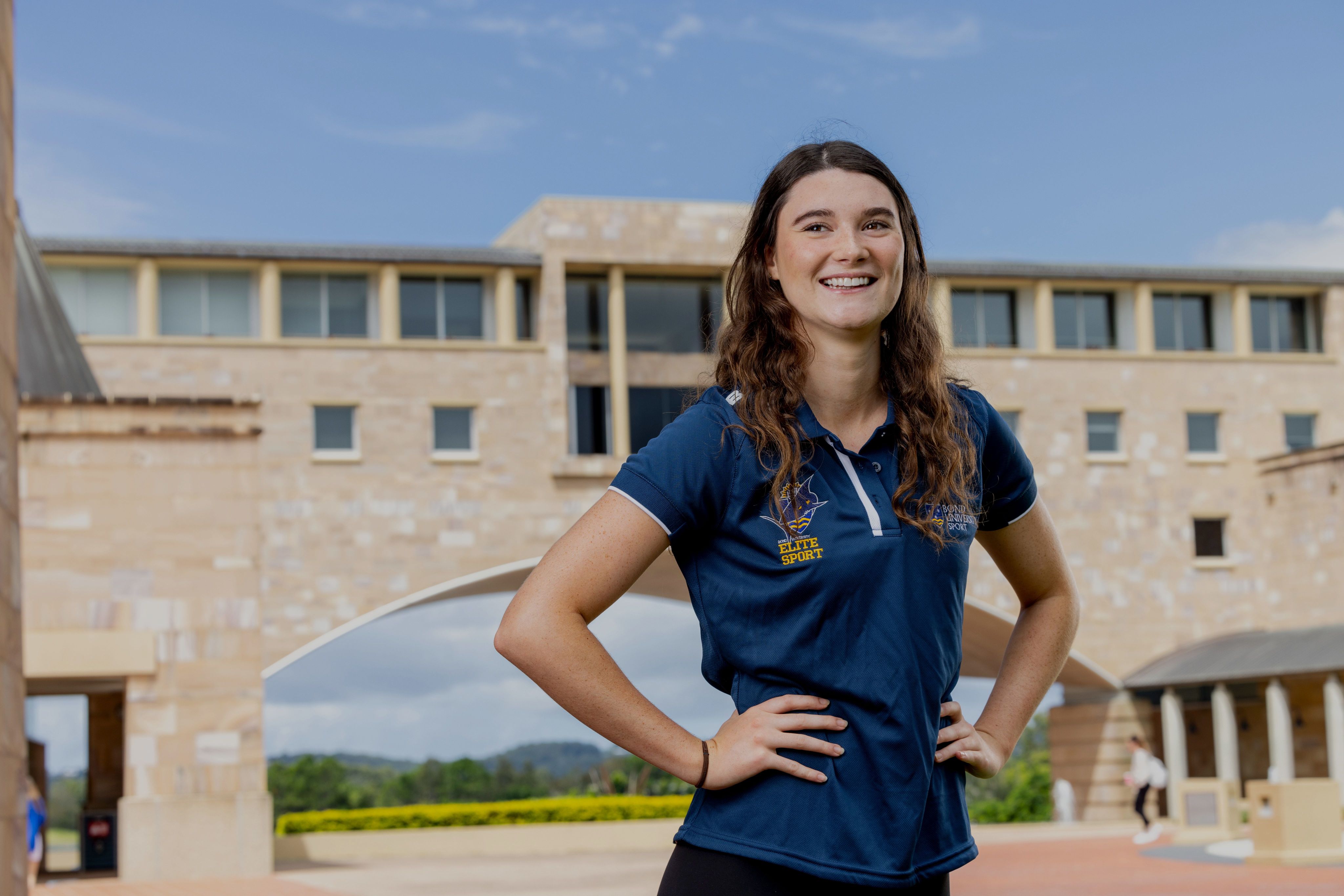
MAKING A CHAMPION
Kiera Gazzard

Original thinking direct to your inbox

Stories from Bond